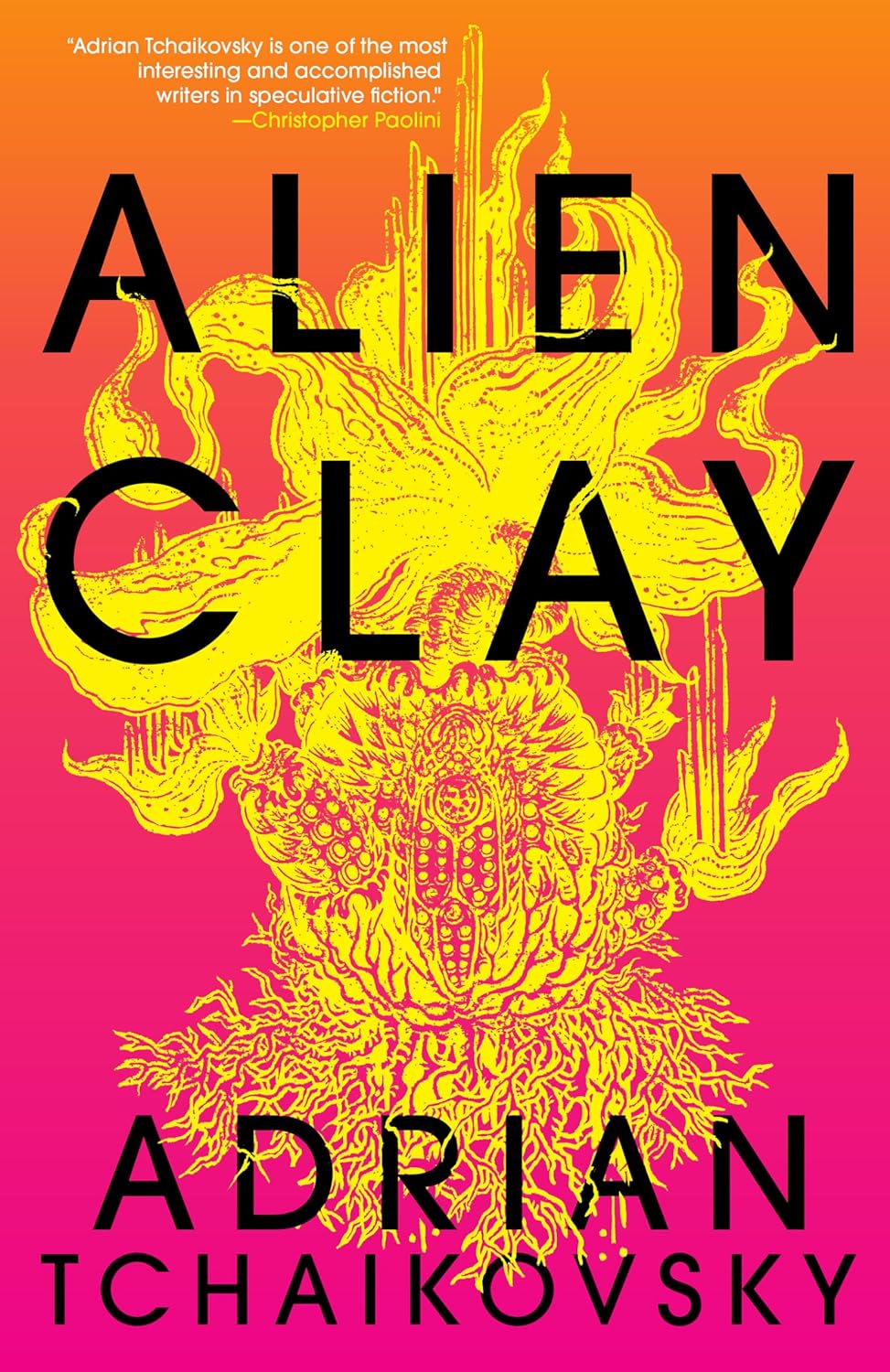- The Good: A political and biological revolution
- The Bad: More enjoyable concept than plot
- The Literary: Philosophical and political scifi
Arrested for political dissident thoughts against the fascist government called Mandate on Earth, Biology Professor Arton Daghdev arrives on the exoplanet Kiln, condemned to work in a labor camp until he dies. Early exploration of Kiln uncovered the remains of an advanced alien civilization, but its ruins and writings remain a theoretical mystery. Kiln’s ecosystem is chaotic and monstrous and highly infectious and is just as much as a threat as the oppressive regime of the labor camp.
The biology of the flora and fauna of Kiln is completely different than our own and still a total mystery to Mandate scientists. It’s highly complex and interconnected and infects humans within hours. Any Kilnish life form has the ability to come together to form “macro-species”, as they are all made of the same common components. It completely contradicts the theory of evolution as the Mandate defines it, in which humans are the pinnacle of evolution. It echos the recent infatuation with fungal life forms in other scifi novels, and this feels similar, yet spins the idea of collective biology even further. I haven’t read a book about alien biology in a while that feels… so alien.
The Mandate, the authoritarian regime against which Daghdev fights, only cares about control and total allegiance. The prison camp resembles a Soviet gulag. The Mandate scientist under whom Daghdev is assigned to work is forced to censor her reports on Kiln life to conform to Mandate scientific orthodoxy. Daghdev continues to work with fellow sympathetic inmates towards an uprising that seems highly unlikely to be successful. Even if they manage to overthrow the prison camp, exposure to Kiln’s biology would likely infect them within hours.
I think the novel draws comparisons between a cooperative and collective biology and the power of collective action in a resistance, which I enjoy. On the other hand, it’s easy to agree as readers that fascist governments are bad, so there’s not much need for Daghdev’s commentary on totalitarian regimes. It’s great that story has parallels drawn between scifi and politics, but the themes pose straight-forward thought experiments that are easily answered, instead of thought-provoking questions about existence and meaning. I like what Tchaikovsky is doing in this story, but for me personally, it’s not as engaging or thrilling as I thought it could be.
Recommended for fans of political prison-colony scifi!
